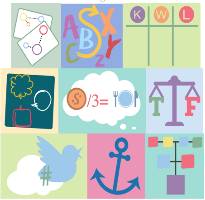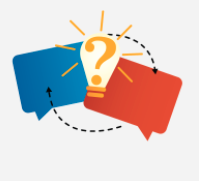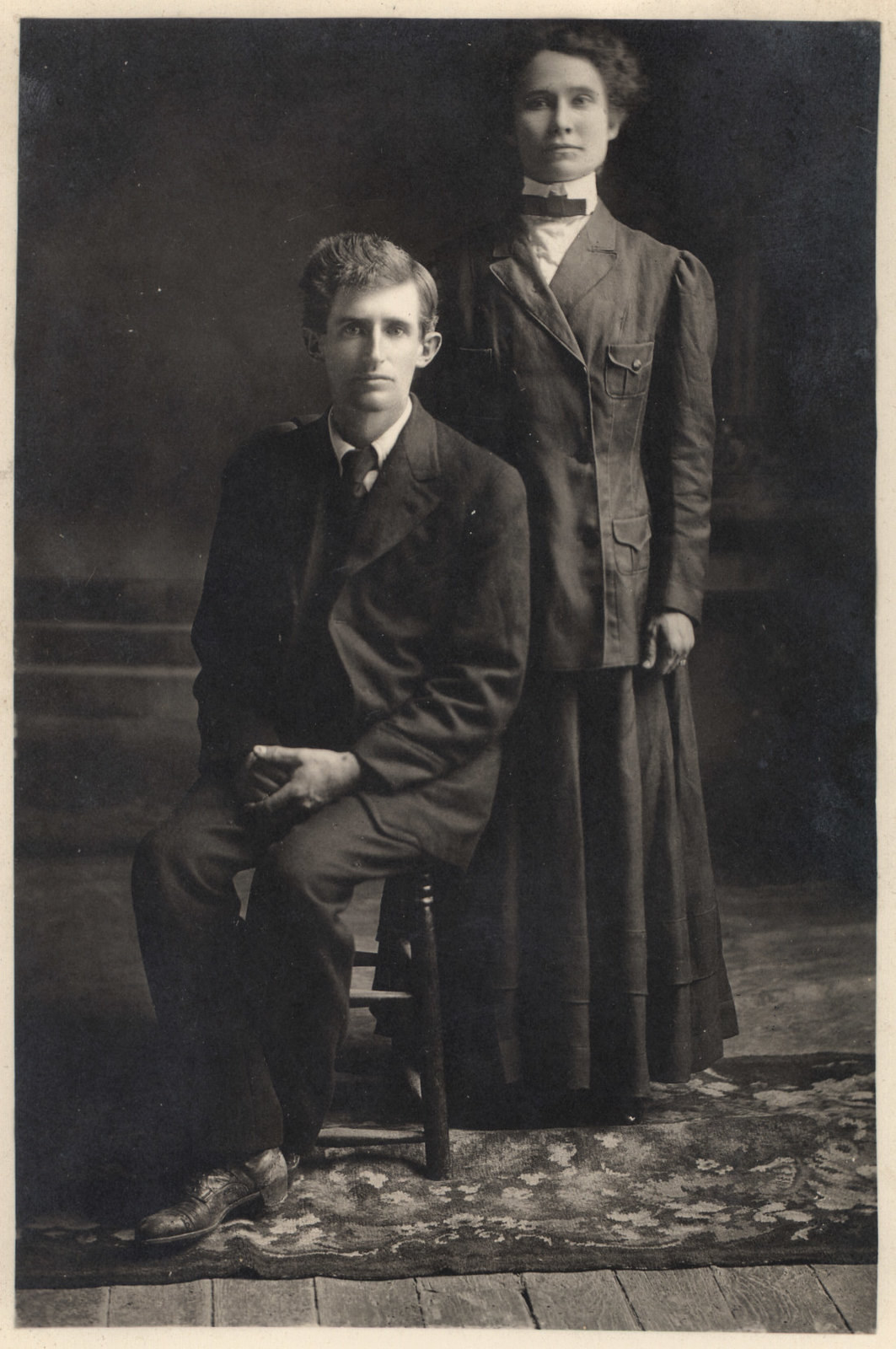
In this professional development session, participants discover how various instructional strategies can be used as authentic tools to create and facilitate student-centered lessons with the 5E Instructional Model. Individually, participants will choose a component of the 5E Instructional Model (Engage,... Read more »

In this session, participants will gain a deeper understanding of meaningful Bell Ringers through the modeling of interdisciplinary instructional strategies. Participants are asked to a) address superficial uses of Bell Ringers and more meaningful uses of Bell Ringers, b) actively engage in authentic... Read more »
Target Audience
Calendar Placement
Group Size
Intention Or Purpose
Standards

Meeting students where they are can seem like a daunting task, particularly when it comes to the ever-changing world of technology. However, using intentionally designed games can make learning fun, provide opportunities for critical thinking, and enhance knowledge related to mindset. Participants will... Read more »

Productive student conversations are a vital part of deep, flexible understanding of content. During this session, participants will increase their awareness of productive and scaffolded student conversations in the classroom or within a synchronous online learning platform, such as Summit or Odyssey. Read more »
Target Audience
Calendar Placement
Group Size
Intention Or Purpose

This activity will dive deep into encouraging inquiry and implementing inquiry-focused instructional strategies in the classroom. Participants will be actively engaged in a variety of strategies as facilitators model the implementation of these strategies. Read more »
Target Audience
Calendar Placement
Group Size
Intention Or Purpose

Discussions are a natural, common practice in ELA classrooms. It is a daily challenge to engage students face-to-face, but engaging students online can feel especially difficult. This presentation introduces strategies that can effectively spark ideas for both face-to-face and virtual discussions: First... Read more »

This 120-minute professional development focuses on understanding how virtual reality (VR) can take teaching and learning to a higher level through real-world connections, 21st-century skills, and critical thinking. Participants will explore VR, and then use VR resources to create a lesson or classroom... Read more »
Target Audience
Calendar Placement
Group Size
Intention Or Purpose

A Classroom Framework for Supporting Student Well-Being focuses on creating a common language for safety, connections, and coping strategies in the classroom. Participants will reflect on their teaching practices with an eye towards transforming their classrooms into safe and nurturing spaces. Read more »
Target Audience
Calendar Placement
Intention Or Purpose

During this second day of the Formative Assessment Institute, participants focus on distinguishing assessment of learning, assessment for learning, and assessment as learning. Read more »
Target Audience
Calendar Placement
Group Size
Intention Or Purpose

In this session, participants reflect on how they can partner with families to help students succeed in postsecondary education. Participants start with a reflection survey on family engagement, then work through family scenarios that focus on discovering each family's strengths and looking for opportunities... Read more »
Target Audience
Calendar Placement
Group Size
Intention Or Purpose

Students will explore climate variation in various environments using EOMF (Earth Observation and Modeling Facility) data, GIS (Geospatial Information Science) data, and weather and climate data. Students will use their observations and data to make predictions about future environmental change and... Read more »
Climate Variation
Grade Level
Subject
Standards

In this lesson, students will explore the dynamics of enzymes by investigating what enzymes do, how they work, and in what types of substances they are found. Prior this lesson, students should have developed a good understanding of cell structure, function, and membrane transport. Read more »
Enzymes
Grade Level
Subject
Course
Standards

In this lesson, students will investigate how to use systems of equations to solve real-world problems. This is a great lesson to wrap up a unit on systems of equations, after students have become familiar with solving systems using any method. This lesson will connect solving systems to real-world... Read more »
Linear Systems of Equations
Grade Level
Course
Subject
Standards

In this lesson, students will read two texts that depict the role of women in American society during the 19th Century. Kate Chopin’s fictional, “The Story of an Hour,” and John H. Young’s, “Our Deportment, or the Manners, Conduct, and Dress of Refined Society,” will be used to analyze elements of... Read more »
Elements of Fiction
Grade Level
Subject
Course
Standards

In this lesson, students explore the historical period of the Progressive Era through analyzing photos and gain a deeper knowledge of this era by reading primary source documents. They learn about several social reform movements and create speeches and posters in order to rally their peers to support... Read more »
Key Periods in U.S. History
Grade Level
Subject
Course
Standards

Students explore causes for the decline in number of giant catfish of the Mekong River system and interpret a set of data taken from 2003 regarding the size and mass of catfish that were caught and tagged. They will display their knowledge in the form of tables, graphs, and pictures. Read more »
Tracking Population Decline Using Biology and Algebra
Grade Level
Subject
Course
Standards

Students will use text analysis strategies to summarize two significant events of the Revolutionary War—the Battle of Saratoga and the French Alliance. Then students, working in collaborative groups, will use their knowledge of these events to annotate the lyrics of the song "Guns and Ships" from the... Read more »
Battle of Saratoga and the French Alliance
Subject
Course
Grade Level
Standards

Experimental Design & Claim, Evidence, and Reasoning
Grade Level
Students will participate in a set of observational experiments, designed to help them come up with "good" evidence to back a claim they present. Students will learn about how to overcome flawed predictions with evidence and design good reasonable explanations. Read more »
Experimental Design & Claim, Evidence, and Reasoning
Grade Level
Subject
Course
Standards

Scientific Method vs. Scientific Thinking
Grade Level
Students are introduced to a more holistic view of doing the scientific method by using scientific thinking instead. Students will be challenged to review and revise what they already know about the scientific method. Students will investigate what it means to do science and discover why some science... Read more »
Scientific Method vs. Scientific Thinking
Grade Level
Subject
Course
Standards

In this U.S. history lesson, students are asked to investigate effects of the 9/11 acts of terrorism and the U.S. response. Read more »
U.S. History: Historical Impact
Grade Level
Subject
Course
Standards

Whether they realize it or not, many students love poetry and use it every day. Introducing poetry in a relevant way can positively engage students in the composition of poetry. In this lesson, students will explore song lyrics as they engage in the analysis and creation of poetry. Read more »
Poetry and Poetic Devices
Subject
Course
Grade Level
Standards

Before, during, and after reading the play "Antigone" by Sophocles, students will use pre-, during-, and after-reading strategies from Kylene Beers' book "When Kids Can't Read." Students will focus on both comprehension of the play and meaningful and relevant themes. Read more »
The Greek Drama Antigone
Grade Level
Subject
Standards

This lesson allows students to reflect on and discuss their perceptions about writing. Shifting the focus from writing from scratch to using words already written as a starting place, students engage in reading and creating blackout poems from newspaper articles. Students also practice listening and... Read more »
Grade Level
Subject
Standards

Centered on the phenomenon of the Blue Fugates, students will explore how recessive traits increase in a population using a Punnett square activity, genotype/phenotype ratios and allele frequency calculations, and pedigree analysis. By the end of the lesson they will be able to explain how social, genetic,... Read more »
Recessive Gene Inheritance
Grade Level
Subject
Course
Standards

This is an introduction to karyotypes and what uses they have. Prerequisite knowledge would be basic genetic structures, such as chromatids, genes, and alleles. Using this lesson would lead nicely into having a discussion/next lesson about the ethics of gene therapy and CRISPR in humans. Read more »
Karyotype for Chromosomal Disorders
Grade Level
Subject
Course
Standards

This lesson uses mathematical manipulatives to engage students in learning how to use the order of operations for finding solutions to simple expressions. Students will explore concepts by playing three games to work with order of operations and to help develop computational fluency. Read more »
Order of Operations
Grade Level
Course
Subject
Standards

Propaganda plays a significant role in influencing populations, especially in times of crisis. In this lesson, students will build on their knowledge about Paul Revere's role in the American Revolution by learning how he used propaganda to influence colonists' opinions through his engraving of the Boston... Read more »
Propaganda and the American Revolution
Subject
Course
Grade Level
Standards

This lesson takes students through an exploration of what they already know about slopes and develops their understanding of lines, especially the linear equation, y=mx+b. Students interact with the lesson in an easy-to-do activity that allows students to gather real data and then use those data to... Read more »
Linear Functions
Course
Subject
Grade Level
Standards

How Did the Constitution Protect the System of Slavery?
Grade Level
Students will listen to a New York Times podcast discussing the contradiction in the Constitution by which it protects both freedom and slavery. Working in collaborative groups, students will summarize four parts of the Constitution—the Three-Fifths Clause, the Fugitive Slave Clause, the Slave Trade... Read more »
How Did the Constitution Protect the System of Slavery?
Subject
Course
Grade Level
Standards

The U.S. Constitution can be a daunting document for students to understand. By having students search through the Constitution, connecting numbers to some important information about our government, this scavenger hunt activity provides the students with a non-threatening way to become familiar with... Read more »
U.S. Government
Grade Level
Subject
Course
Standards

In this lesson, students will examine the three East Asian religions of Confucianism, Taoism, and Buddhism using the traditional painting "The Vinegar Tasters" as a visual guide. Students will work in groups to read about these religions and teach the class what they learned. After completing a Venn... Read more »
East Asian Religions
Subject
Course
Grade Level
Standards

In this lesson about the Industrial Revolution, students will begin by observing photographs of factory workers and analyzing primary sources to make inferences about working conditions during the Industrial Revolution. Based on the information they gather, students will write a letter protesting working... Read more »
The Industrial Revolution
Related
Subject
Course
Grade Level
Standards

This short, introductory lesson is a great way to begin the year in any history class from 8th-12th grade. Each student will create their own definition of history then compare it to quotes about history and the term's dictionary definition. Students then will reexamine their own definitions, modify... Read more »
Intro to History
Grade Level
Subject
Course
Standards

This lesson presents an overview of political maps in general and specifically maps from countries in the Eastern Hemisphere. Students will understand the key features of a political map. They will complete a map of European countries, capital cities, and related political map information. By the end... Read more »
European Countries
Subject
Course
Grade Level
Standards

This lesson, used in conjunction with Ray Bradbury's short story "A Sound of Thunder," guides students to determine their own definitions for cause, effect, and foreshadowing, find examples of these concepts in the text, and create a brochure based on the story's fictional Time Travel, Inc. This lesson... Read more »
Analyzing Short Stories
Subject
Course
Grade Level
Standards
Students will identify the elements of a budget. They will examine how life events and lifestyle affect and change budgeting needs (i.e., personal expenses, emergencies, saving for future goals, family vs. individual). Read more »
Standard 1: Fundamentals of Budgeting
Grade Level
Subject
Course
Standards

In this lesson, students will consider the context and evaluate perspectives while comparing "Story of an Hour" and excerpts from "The Awakening". After reading the stories, students will write a short response from the perspective of the characters. Read more »
Perspective
Subject
Grade Level
Standards

This lesson examines the phenomenon of coral bleaching as a context for learning about photosynthesis. Students investigate photosynthesis' inputs and outputs using an online simulation activity and connect these elements to the relationship between coral and their symbiotic algae. Student will also... Read more »
Photosynthesis and Coral Reef Health
Sponsor
Grade Level
Subject
Standards

This lesson analyzes the context and setting of the novel "Of Mice and Men." This cross-curricular lesson previews societal issues that were prevalent in John Steinbeck's text. Steinbeck was a young man during the Great Depression, and he wove the background and context of the Great Depression into... Read more »
Background & Setting
Subject
Course
Grade Level
Standards

This lesson focuses on the notation for writing domain and range of a function. Students will recall their knowledge of domain and range then formalize their understanding of algebraic, set, and interval notation. This lesson is designed to be taught at the beginning of an Algebra II course. There are... Read more »
Domain and Range Notations
Grade Level
Course
Subject
Standards

Participating in difficult conversations in a classroom setting gives students a chance to learn how to express ideas and opinions safely. In this lesson, students build trust and respect for each other, building their confidence to speak on difficult topics without fear. Students will engage with complex... Read more »
Speaking and Listening
Subject
Grade Level
Standards

Causes and Effects of the Congress of Vienna
This lesson introduces students to the impact of the Congress of Vienna. This lesson is meant to be taught after the French Revolution and Napoleon content has been introduced to students. Using hands-on activities, discussions, and research, students explore the individuals who helped shape the Congress... Read more »
Causes and Effects of the Congress of Vienna
Subject
Course
Standards

In this lesson, students will research, analyze, and evaluate the history of the Indian Reorganization Act, individual tribal governments, and their impact on Native Americans. Students will watch a short video describing the purpose of tribal governments. Then, they will choose one of the 39 Oklahoma... Read more »
Tribal Governments
Grade Level
Subject
Course
Related
Standards

This lesson connects cultural influences with historical media concepts. Students will use a visual dictionary of Native American pictographs to decode a story, reflect on cultural influences in learning and expression, and create their own story endings using pictographs. Read more »
Exploring Cultural Forms of Written Communication
Grade Level
Course
Related
Subject
Sponsor
Standards

Students will learn that light is formed by waves and can change direction through diffraction. They will use pencils to build a spectroscope and make observations as to the color and size of light. Students will research wave diffraction and use what they learned to build and test a spectroscope. Read more »
What Is Diffraction?
Sponsor
Grade Level
Subject
Course
Standards

In this lesson, students will explore some culinary aspects of French culture to learn about stereotypes and how learning about other cultures affects our conception of others. Students will define the word “stereotype.” After doing so, they will share stereotypes they have regarding French food, watch... Read more »
Examining Stereotypes in French Cuisine
Grade Level
Course
Standards

Wave Properties of Particles
Grade Level
In this lesson, students observe standing waves in strings, rods, pipes, and hoops through videos and teacher demonstrations. Students investigate the ‘particle in a box’ problem using a PhET simulation, which presents the electron as a wave with discrete wavelengths. Students investigate wave functions... Read more »
Wave Properties of Particles
Sponsor
Grade Level
Subject
Course
Standards

Students will define “stereotype.” After doing so, they will share stereotypes they have regarding Hispanic food, watch a few videos that will explain or dispel those stereotypes, and come to a consensus on whether stereotypes are useful. When they have finished the discussion, they will construct a... Read more »
Examining Stereotypes in Hispanic Cuisine
Grade Level
Related
Course
Subject
Standards

Students explore projectile motion using Newton's first law of motion. Read more »
Newton's First Law of Motion
Grade Level
Subject
Standards

In this lesson, students will use their knowledge of derivatives and pattern-recognition skills to find antiderivatives. Students will begin with the power rule for integration, evaluate the indefinite integral of basic trigonometric expressions, then learn how to integrate with u-substitution. Students... Read more »
Integration by Substitution
Grade Level
Course
Subject
Standards

In this lesson students will learn about forensic impression evidence. They will come to understand the methods for documenting and analyzing two- and three-dimensional impressions by collecting dental stone castings and inked impressions of shoe prints. After analyzing the characteristics of these... Read more »
Analyzing Forensic Impression Evidence
Grade Level
Subject
Standards

